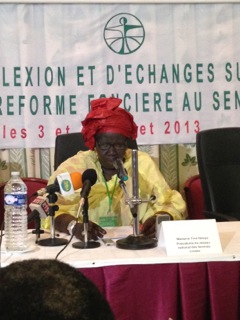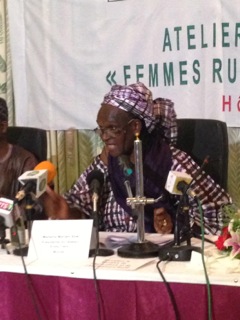I'm sorry, I left you alone for a while.
I have been a lot in the field, and internet connections were not exactly "easy".
It all started with a 11 hours trip in a "7-places", from Dakar to Koussanar:
11 hours is actually because the "7-places" only leaves when it's full. So I actually had to wait 3h30.
The vendor (below) was very friendly, but not exactly honest when he said "quick, buy your ticket, we're almost full and leaving soon!"
Fortunately the trip went well!
The next day I started the visits in Saving for Change groups. 7 days, 11 villages visited and 19 groups interviewed... Intense but so insightful!
Oral accountancy in Sinthiou Demba Deme village
The groups constitute an incredibly strong organizational basis, which actually constitutes potential for many other actions.
With Oxfam and our local partner La Lumière, we are studying how these groups could access more credit through MFIs (MicroFinance Institutions), and what could be their interests, capacity and potential for policy advocacy.
Fascinating!
Some answers to come in the next posts...
A bientôt!





